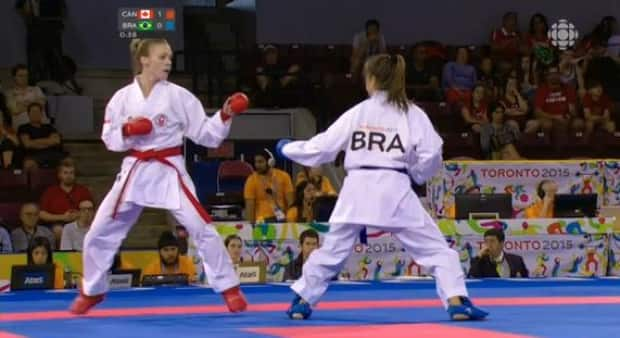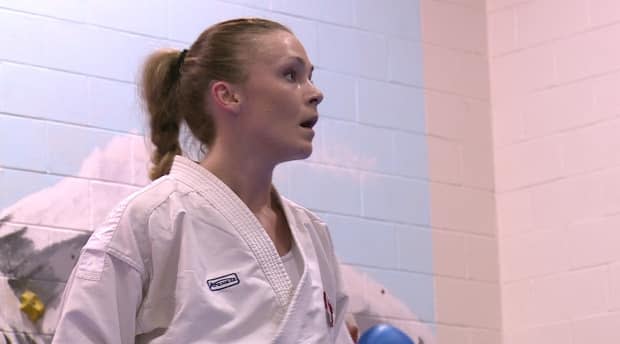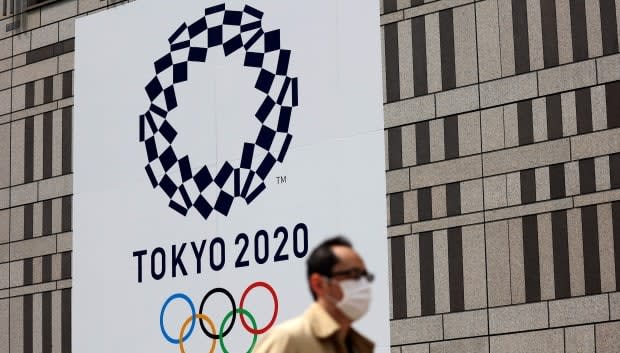New Brunswick athletes balance competition, isolation in pursuit of Tokyo Games

When Kate Campbell steps on to the mats in June for the karate Olympic qualifiers in Paris, it will be the first time she'll have competed in well over a year.
"It seems like forever," said Campbell, who lives and trains out of Fredericton.
Campbell is one of many New Brunswick athletes who have to balance that need to compete with the isolation that comes with travel as they prepare for the upcoming Olympic and Paralympic Games.
People entering New Brunswick have to isolate for 14 days, and as of late April, part of that quarantine must happen at designated hotels.

"It's definitely a challenge. It kind of limits the number of times that I feel it appropriate to leave the province," Campbell said.
She's chosen to spend the past year in Fredericton and forgo competition, while some of her fellow Team Canada athletes outside the Atlantic bubble have been able to travel.
In a regular karate season, Campbell would often be in a different country for a competition every two weeks, but instead she spent that time training and improving.
"Obviously a full 13 months of that is not what I'm used to, but I've been able to work on some stuff that I might not have been able to if I was still travelling every two weeks," Campbell said.
Missing family
Not all New Brunswick Olympic hopefuls have opted to stay put. Jill Irving of Moncton competes in equestrian, and moved to Florida when the season started there in October.
There she's been able to compete in all of her sport's major events and train with teammates.
"I felt it was really important to prepare for the next Olympics to be able to be in the ring," Irving said.
"Our European counterparts — all their horse shows were shut down, so we were so fortunate that we were able to show here and that we had a regular season."

Events in Canada were cancelled as well, but because Irving went to Florida, she feels prepared for the Olympic Games.
But it has come at a cost. Other than a quick trip home spent quarantined, followed by a trip to Ontario to see her new grandchild, she has barely been able to see her family.
"I have some teammates that we bubbled with really carefully and we cooked together and we did things but we were all lonely," Irving said.
Danielle Duplessis of Fredericton feels similarly.
Duplessis is a member of the women's wheelchair basketball team, and goes to school in Toronto.

She's been back in Toronto since February after spending the first part of the pandemic in New Brunswick. Since she went back to Toronto she hasn't been able to make her typical trips home.
"I would love to go home to New Brunswick at some point to see my people, but that would involve taking full weeks off training and so it's not feasible," Duplessis said.
She doesn't think she will get to visit her family until after the Paralympics are over in September.
Finding the positive
Duplessis believes the extra year of training has helped her prepare for the Paralympics. She's only been playing wheelchair basketball for a few years, so the extra time has helped hone her skills.
"I think I've actually really benefited, as funny as it sounds, from the year long delay," Duplessis said.

Kate Campbell, who has stayed home during the pandemic, used the time in Fredericton to her advantage. She says she has been able to train in a way she couldn't have if she moved somewhere else or travelled for competition.
"Given the restrictions and how public health authorities have taken this so seriously, I've actually been able to continue training with my teammate bubble," said Campbell, who hasn't had to deal with the same lockdowns some of her fellow athletes have.
She feels she's ready and will have a chance to prove that at the qualification tournament in Paris in June.
Duplessis and Irving will find out if they're going to Tokyo that month as well.

 Yahoo Sports
Yahoo Sports 